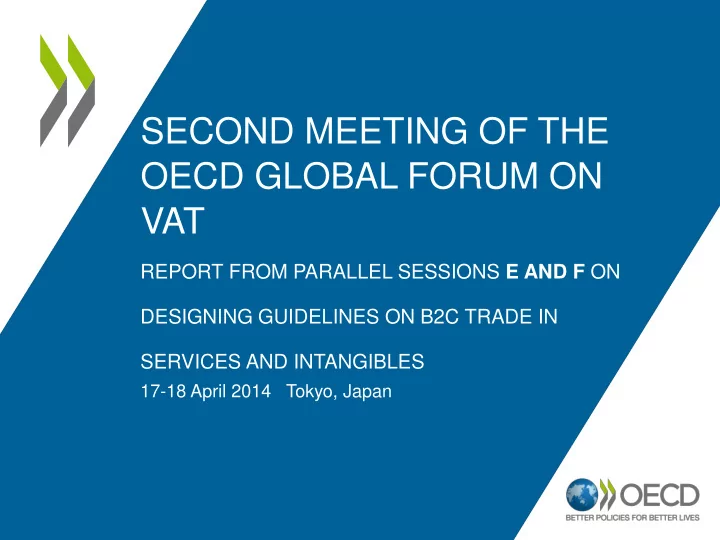

SECOND MEETING OF THE OECD GLOBAL FORUM ON VAT REPORT FROM PARALLEL SESSIONS E AND F ON DESIGNING GUIDELINES ON B2C TRADE IN SERVICES AND INTANGIBLES 17-18 April 2014 Tokyo, Japan
Rapporteurs • Parallel Session E: Kerstin Alvesson , Sweden • Parallel Session F: Piet Battiau, OECD Secretariat 2
Outcomes of Session E (Design framework for future guidelines) Many proxies used but common approaches for the result needed. Place of performance « on the spot services ». Customer residence « services on a distance ». Maybe other proxies are needed. Distinguish between B2C and B2B probably needed. There is a need for better administrative co-operation. 3
Outcomes of Session F (Digital Economy) B2C trade in digital products is booming. A framework for the proper VAT treatment is needed to address revenues risks and issues of competitve distortion Coherent approaches for identifying « consumers », « suppliers » and « jurisdcition of consumption » are needed A system based on « customer residence » is likely to offer a good solution, combined with a vendor collection method based on simplified registration and compliance mechanisms This needs to be complemented with enhanced international cooperation to support compliance of obligations by non-resident vendors 4
Overall conclusions There is a need for a common approach in the world as the global trade for B2C is growing rapidly. Future guidelines on B2C could form the basis for this common approach. Guidelines on place of taxation will be needed to be combined with enforcement methods. Administrative co-operation will be very important. 5
Recommend
More recommend